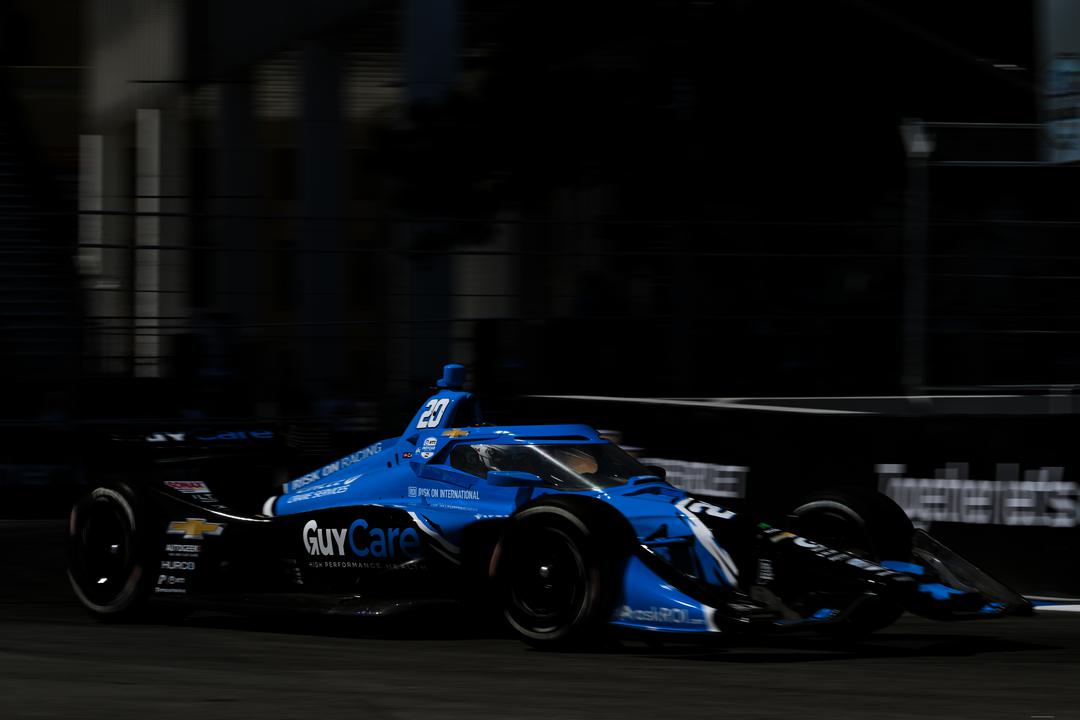The Legal Battle of Ed Carpenter Racing and the Importance of Formal Contracts in IndyCar
The world of IndyCar racing is not solely defined by the high-speed action on the track; behind the scenes, intense business struggles unfold that can be just as dramatic. One recent case that exemplifies this reality is the legal dispute between Ed Carpenter Racing (ECR) and their former sponsor, Todd Ault. This situation serves as a significant cautionary tale regarding the necessity of formal contracts in the world of motorsports.
Background of the Dispute
Ed Carpenter Racing, a prominent team in IndyCar, found itself embroiled in a lawsuit against Ault, who was expected to provide sponsorship funding amounting to $10 million for the 2024 racing season. The legal proceedings took place in Indiana and, unfortunately for ECR, the outcome was unfavorable. The court ultimately dismissed the case “with prejudice,” meaning that the team cannot bring the case back to court.
At the heart of the conflict lay two critical agreements that were never formally documented. ECR claimed that sponsorship agreements and a personal guarantee from Ault were established through email exchanges, rather than through signed contracts. The discussions included an amount of $8.4 million, with Ault proposing financial support via his companies, which included Guy Care, BitNile, and RiskOn International.
However, the judge’s ruling was clear: informal communications, such as emails, do not equate to a legally binding contract. Ault’s alleged personal guarantee lacked his signature, which was a violation of Indiana’s Statute of Frauds. Furthermore, the purported sponsorship agreement involving Ault’s company, VF2, also lacked a signature. As a result, the court determined that without signed documentation, there was no enforceable contract to pursue.
The Implications of the Ruling
This ruling has significant implications for the world of motorsports, particularly regarding sponsorship agreements and the importance of having formal contracts. ECR’s reliance on email negotiations may have stemmed from a desire to secure a sponsorship deal quickly, but the absence of a signed contract ultimately led to their downfall in court. The decision underscores a critical lesson for all involved in the business side of racing: the need for caution and thoroughness in contractual agreements.
ECR’s attempt to display Ault’s company logos on their cars without a formalized contract illustrates a common pitfall in the fast-paced environment of sports sponsorships. The court’s statement that this was a “choice made solely by ECR” emphasizes that the team was responsible for its own decisions. The judge determined that this situation did not constitute unjust enrichment for Ault’s businesses, further complicating ECR’s position.
The Financial Landscape of IndyCar Racing
The financial mechanisms that underlie the spectacle of IndyCar racing are complex and often fraught with challenges. While drivers risk their lives on the track, teams such as ECR are engaged in crucial battles behind the scenes to ensure their financial viability. Sponsorship deals are essential for funding operations, covering costs for equipment, salaries, and other expenses associated with running a competitive racing team.
Securing a reliable sponsor can be a game-changer for a racing team. However, the ECR case highlights the risks involved when teams become overly confident in verbal agreements or informal arrangements. In the competitive world of racing, where time is of the essence, teams might prioritize speed over caution, leading to potential pitfalls that can jeopardize their financial stability.
The ruling in favor of Ault serves as a reminder that in the realm of business, especially in high-stakes environments like motorsports, the devil is in the details. Without formal agreements in place, even the most promising of sponsorship deals can evaporate, leaving teams scrambling for financial support.
Lessons Learned and Best Practices
The Ed Carpenter Racing case offers valuable insights into best practices for managing sponsorship agreements and contracts in the world of IndyCar racing. Here are some essential takeaways:
1. Always Secure Signed Contracts
The most crucial lesson from this dispute is the necessity of having signed contracts for all sponsorship agreements. Regardless of how promising a relationship may seem, it is vital to formalize agreements in writing and ensure all parties sign the documents. This step provides legal protection and clarity regarding the obligations of each party.
2. Document All Communications
While emails and other informal communications can serve as a basis for negotiations, they should never replace formal contracts. Teams should document all discussions and ensure that any agreements made are reflected in a signed contract. This practice helps establish a clear record of what was agreed upon, which can be invaluable in case of disputes.
3. Understand the Legal Framework
Teams should be aware of the legal frameworks that govern contracts in their respective states. In Indiana, for example, the Statute of Frauds requires certain contracts to be in writing and signed to be enforceable. Understanding these laws can help teams navigate potential legal pitfalls more effectively.
4. Consult Legal Experts
Engaging with legal professionals who specialize in contract law can be a wise investment for racing teams. Legal experts can help draft and review contracts to ensure they meet all necessary requirements and protect the interests of the team.
5. Foster Transparent Relationships
Building transparent and trusting relationships with sponsors can facilitate smoother negotiations and strengthen partnerships. Open communication and a commitment to formal agreements can help avoid misunderstandings and conflicts in the future.
Conclusion
The case involving Ed Carpenter Racing and Todd Ault serves as a stark reminder of the importance of formal contracts in the high-stakes world of IndyCar racing. The ruling demonstrates the potential consequences of relying on informal agreements and the need for teams to prioritize legal protections in their business dealings.
As the world of motorsports continues to evolve, teams must adapt to changing dynamics and ensure they are equipped with the knowledge and resources necessary to navigate the complexities of sponsorship and contracts. By learning from the experiences of ECR, other racing teams can enhance their practices, safeguard their interests, and ultimately thrive in the competitive landscape of IndyCar racing.
